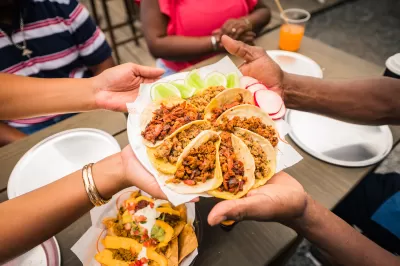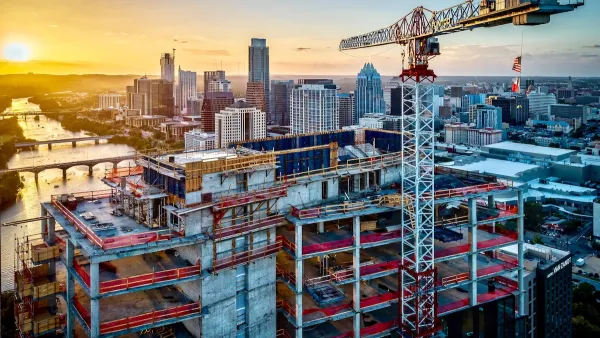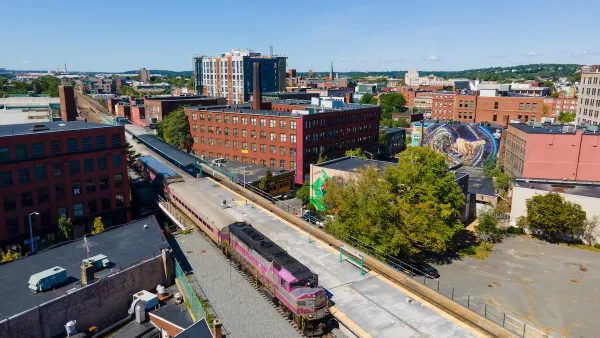A land use dispute in Indiana points to broader questions about zoning and property rights.

A dispute over whether a restaurant could open in a highway-adjacent strip mall in Fort Wayne, Indiana has brought the “Is a taco a sandwich?” question to the land use realm, reports Andrew Wimer in Forbes.
Residents who live near the strip mall say a proposed business would violate the “no fast food” rule that was part of the agreement made with the city when the property was rezoned from residential to commercial. “However, the agreement allowed for a shop that made custom sandwiches, such as a Jimmy Johns or Subway.”
As Wimer points out, “Quintana’s strip mall is not on a quiet residential avenue. In fact, right across the street is another strip mall that has a Moe’s Southwest Grill. A few hundred yards east is a strip mall with yet another Mexican restaurant and across the street from that is a Taco Bell.”
Similar zoning disputes are not uncommon. Wimer notes that, in many cases, “zoning rules often defy common sense,” barring perfectly reasonable uses or preventing people from operating home businesses. Now, the Institute for Justice has launched a Zoning Justice Project aimed at protecting the rights of people to use their property to their and their community’s benefit. “This includes not only the right to start businesses but also to build housing or use private property to tackle public problems, like homelessness or hunger.”
FULL STORY: https://archive.is/XMBuJ#selection-595.0-595.55

Maui's Vacation Rental Debate Turns Ugly
Verbal attacks, misinformation campaigns and fistfights plague a high-stakes debate to convert thousands of vacation rentals into long-term housing.

Planetizen Federal Action Tracker
A weekly monitor of how Trump’s orders and actions are impacting planners and planning in America.

In Urban Planning, AI Prompting Could be the New Design Thinking
Creativity has long been key to great urban design. What if we see AI as our new creative partner?

King County Supportive Housing Program Offers Hope for Unhoused Residents
The county is taking a ‘Housing First’ approach that prioritizes getting people into housing, then offering wraparound supportive services.

Researchers Use AI to Get Clearer Picture of US Housing
Analysts are using artificial intelligence to supercharge their research by allowing them to comb through data faster. Though these AI tools can be error prone, they save time and housing researchers are optimistic about the future.

Making Shared Micromobility More Inclusive
Cities and shared mobility system operators can do more to include people with disabilities in planning and operations, per a new report.
Urban Design for Planners 1: Software Tools
This six-course series explores essential urban design concepts using open source software and equips planners with the tools they need to participate fully in the urban design process.
Planning for Universal Design
Learn the tools for implementing Universal Design in planning regulations.
planning NEXT
Appalachian Highlands Housing Partners
Gallatin County Department of Planning & Community Development
Mpact (founded as Rail~Volution)
City of Camden Redevelopment Agency
City of Astoria
City of Portland
City of Laramie





























